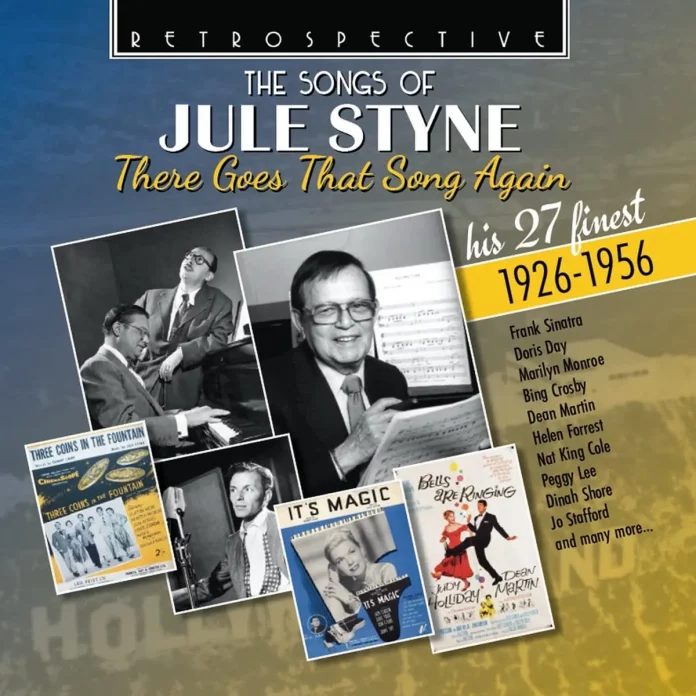This is not the first time I’ve had occasion to sing the praises of Retrospective, who are slowly but surely preserving the Lesser-Spotted American Songbook via their collections of Second Eleven songwriters of which this is yet another example.
At the risk of seeming churlish, therefore, I feel obliged to take exception to the cover, which states “his 27 finest” and then adds a time span, 1926-1956. Nothing wrong with that, perhaps, except to a pedant like me (Oh, what a rogue and pedant slave am I). Anyone even on nodding terms only with popular song knows that his finest has to include titles from his two greatest shows, Gypsy (1959) and Funny Girl (1964) or, to put it another way, it would be a brave man who excluded Ev’rything’s Coming Up Roses and Don’t Rain On My Parade from any anthology of Styne’s work.
That said, this is as fine an album as any in the series – Walter Donaldson, Jimmy McHugh, Jimmy Van Heusen, etc – providing not only popular songs from two decades but also a reminder of A-list singers – Jo Stafford, Dinah Shore, Doris Day, Bing Cosby, Frank Sinatra – and, on the debit side, the Singing Sweat-Gland (Vaughn Monroe). Cockney (he was born Julius Kerwin Stein in Bethnal Green, moving to Chicago at age six) Monroe turned out more than 1,500 songs for the jukebox, silver screen and Broadway stage, working with several lyricists.
When he arrived in Hollywood he was assigned not to a major studio but to Gower Gulch, known as Poverty Row and home to low-budget studios like Monogram and Republic. He was teamed with lyricist Frank Loesser, a Hollywood veteran, on a production entitled Sis Hopkins. He played a melody for the street-wise Loesser, who promptly said: “Put that away, we’ll take it to MGM.” In the event they took it to Paramount where it wound up in Sweater Girl. You can hear the tune, I Don’t Want To Walk Without You, in the Helen Forrest/Harry James version (which charted at number 3) on this album. It’s typical of the quality of offer.
Discography
There Goes That Song Again; Sunday; I Don’t Want To Walk Without You; Victory Polka; I’ve Heard That Song Before; I’ll Walk Alone; Saturday Night Is The Lonliest Night Of The Week; It’s Been A Long, Long Time; I Fall In Love Too Easily; Let It Snow, Let It Snow, Let It Snow; I’m Glad I Waited For You; Can’t You Read Between The Lines; Five Minutes More; The Things We Did Last Summer; I Believe; Time After Time; Papa Won’t You Dance With Me; I Still Get Jealous; It’s Magic; It’s A Great Feeling; Bye, Bye, Baby; Two Little Girls From Little Rock; Diamonds Are A Girl’s Best Friend; Money Burns A Hole In My Pocket; Three Coins In The Fountain; Just In Time; The Party’s Over (79.00)
All music by Jule Styne with various lyricists. Performers include Frank Sinatra, Jo Stafford, Dean Martin, Nat King Cole.
Retrospective RTR 4393















